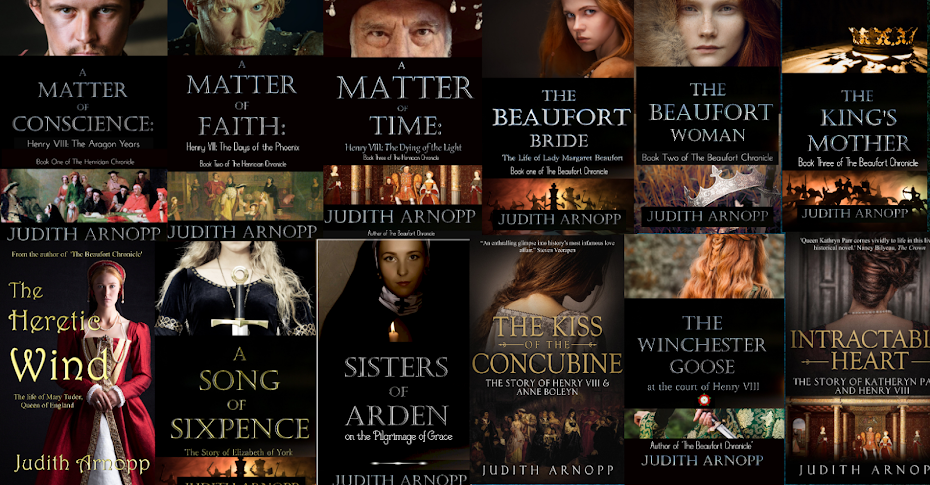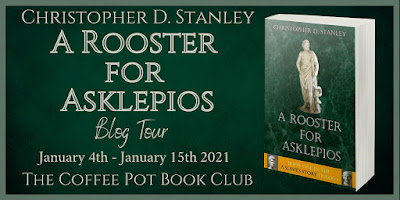A Rooster for Asklepios
Marcus, a slave in the household of Lucius Coelius Felix, enjoys a better life than most slaves (and many free citizens) as the secretary and accountant of a wealthy aristocrat. His master is rising in the civic life of the Roman colony of Antioch-near-Pisidia (central Turkey), and his responsibilities and income are growing as well. If this continues, he could soon earn enough to buy his freedom, set up a small business, and even marry.
Then misfortune strikes, and his master falls into a deep depression that is exacerbated by a nagging illness that his physician is unable to cure. The future looks bleak until the physician receives a dream from the healing god Asklepios calling Lucius to travel hundreds of miles across western Asia Minor to his sanctuary at Pergamon for treatment and, he hopes, a cure.
Accompanied by Marcus and his new wife Selena, Lucius embarks on a long and eventful journey in which both master and slave encounter people and ideas that challenge long-held beliefs about themselves, their society, and the world around them. Values are questioned, loyalties tested, and identities transformed in a story that brings to life a corner of the Roman empire that has been neglected by previous storytellers.
Amazon UK • Amazon US • Amazon CA • Amazon AU
A Bull For Pluto
(A Slave's Story Trilogy, Book 2)
By Christopher D. Stanley
After a lengthy and eventful stay at the sanctuary of Asklepios in Pergamon, the time has come for Lucius and Marcus to return to Antioch. Selena had been sent home earlier when Lucius learned that she was pregnant, and the impending arrival of the winter snows could soon make it impossible for them to reach their destination before the child is born.
To Marcus’s surprise, Lucius announces that he plans to stop for a while in Hierapolis to bask in the healing waters of the city’s renowned hot springs. Here Marcus meets a young woman named Miriam who challenges him to embrace his long-hidden Jewish ancestry. Marcus is torn between his budding love for Miriam and the cost of heeding her advice.
A tragic decision by Lucius seals their fate, as their full attention must now be devoted to preserving Lucius’s life. They reach Antioch in time to learn that Lucius’s son Gaius has failed miserably in his management of the household while his father was away. If Lucius should die, Marcus, Selena, and her unborn child will be at the mercy of this tyrant. To fend off this danger, Lucius must tell Marcus the full truth about his past, a truth that will ensure Marcus's future at the cost of his master's honor. Can he bring himself to act before his inevitable end?
Amazon UK • Amazon US • Amazon CA • Amazon AU
Praise for A Rooster for Asklepios and A Bull For Pluto
"This compelling and enjoyable story offers the reader a superb 'insider' view of life in the first-century Greco-Roman world. I enjoyed traipsing around Anatolia with Lucius and Marcus!"
-Dr. Terence Donaldson, Academic Dean and Professor of New Testament, Wycliffe College, Canada
"The realism of this story reflects the author's deep first-hand knowledge of the landscape and culture where the narrative takes place."
-Dr. Mark Wilson, Director, Asia Minor Research Center, Antalya, Turkey
"This well-researched book really brings the Roman world to life!"
-Dr. Alanna Nobbs, Professor of Ancient History, Macquarie University, Australia
"The amount of research, imagination, and effort involved in crafting this story earned my admiration, and stirred my curiosity, too."
Dr. Mark Nanos, Lecturer, University of Kansas, USA
Sickness and Health Care in the Roman World
Health conditions and sanitation practices in Greek and Roman cities were vastly inferior to our own, producing serious health problems and short life expectancies (by modern standards) for the bulk of their citizenry. Few authors of Roman historical fiction, however, choose to show their readers this side of ancient life.
By contrast, matters of sickness and health play a central role in my two new historical novels, A Rooster for Asklepios and A Bull for Pluto. A brief overview of the Roman health care system will provide some historical background for readers who are considering purchasing the books.
The Banality of Sickness
In Greek and Roman cities, very few people enjoyed what we would call a “comfortable middle-class lifestyle.” Income and wealth gaps were huge, and everyone except the wealthy elites and those who served them lived on the cutting edge of survival. Malnutrition was a constant threat, especially in times of famine. Sanitation was poor, even in the larger cities that benefited from Roman sewers, and waste-borne diseases were common. Public baths exposed bathers to all sorts of communicable diseases, while periodic floods spread germs over low-lying areas near bodies of water. Those at the lower end of the socioeconomic spectrum lived in dirty, crowded rooms on the upper floors of tenement buildings or in dank cellars, while the poorest residents slept in the open air on fetid sidewalks among disease-ridden pests.
Contagious illnesses spread rapidly under such conditions. At least half of all children died before their fifth birthday, and the average age of death for those who reached adulthood was around 40 for men and 35 for women. (The figure is lower for women because so many died while giving birth.) Among the poor, it would have been unusual for children to grow up with living grandparents.
Even the wealthy, however, were not immune from the threat of sickness. Unlike modern cities where the rich live in their own neighborhoods apart from the poor, people of every social level lived closely together in Greek and Roman cities. Any disease that struck the poor was likely to affect the rich as well unless they were able to escape in time to their farms in the neighboring countryside. The wealthy did enjoy healthier diets and better means of tending to their bodies, including regular exercise at the local gymnasium, and they could always afford the fees of a physician when they needed one.
But sickness and death remained a constant threat even for those at the top of the social pyramid. Wealthy citizens who had good genes, healthy lifestyles, and an ample supply of luck might live into their 60s or even 70s, but few would have reached their 80s, and most who did would have been seriously debilitated by that time.
Modes of Health Care
Every society in human history has developed mechanisms for tending and curing the sick. In modern Western societies, the bulk of the care is provided by a science-based medical system that has proved so effective that most people regard it as the default mode of treatment. In the ancient world, by contrast, medicine was only one of several competing systems of care.
For most people the first resort was self-care within the family. Common remedies included eating (or avoiding) certain types of food, taking home-made medicines, heating or cooling the body, exercise, and rest. Many treatments included the recitation of spells or incantations that were believed to enhance their effectiveness. Virtually everyone wore some type of amulet—items or substances that were thought to protect the wearer from harm—on a daily basis, and more amulets could be added to treat specific conditions. Specialists in such “magical” cures (often women) were available to assist with more stubborn cases.
Equally common were religious modes of treatment. Prayers and vows were offered to various deities to protect the household and heal the sick as part of the regular morning ritual that marked the beginning of every Roman’s day. In more serious cases, animal sacrifices and other types of offerings might be presented at the temple of a healing deity, especially the Greek god Asklepios (or Aesculapius, as he was known by the Romans). If this proved insufficient, those who could afford it might travel to a regional healing sanctuary in hopes of being visited by Asklepios in a dream either to heal them or to prescribe a treatment that would do the job.
A third mode of care was provided by physicians. Physicians occupied a fairly low position in the Greco-Roman social order—most people regarded them as more like skilled craftsmen than professionals. Many were slaves who had been bought by wealthy citizens to provide care for their households or by civic authorities to treat the general public. Some plied their skills at healing sanctuaries, either as slaves who were owned by the resident deity or as freedmen, like the physician Heracleion in my novels. Most came from Greek or native stock, even those who cared for Romans.
Medical training in the Greek world consisted of working as an apprentice to an established physician, not attending a medical school to earn a degree. Medical treatises were few and far between, so the bulk of a physician’s education came from observing, asking questions, and applying treatments to live patients. Here and there a group of medical trainees might live and study together at a healing sanctuary like the ones at Pergamon and Carura that appear in my novels, but even here their training did not include a formal curriculum or classrooms as in a modern school.
Greek medical theory was based primarily on philosophical speculation rather than scientific inquiry. Greeks viewed the body as a mixture of the four basic elements of the universe: earth, air, water, and fire. These elements were represented in the body by four “humors” or fluids that circulated throughout the body: blood, phlegm, yellow bile, and black bile. In a healthy body, the humors were properly balanced and the organs worked as designed. Sickness resulted when the humors were thrown out of balance by some type of disorder. The task of the physician was not to diagnose the cause of the imbalance but to prescribe treatments that would restore the balance of the humors, including heating, cooling, diet, medications, exercise, purging, and bleeding.
Needless to say, few of these treatments have any support from modern science. But a general awareness of how people viewed and treated illness in the ancient world will enable readers to better understand the various types of healing that Lucius pursues in the course of my stories.
Author Bio
Christopher D. Stanley is a professor at St. Bonaventure University who studies the social and religious history of Greco-Roman world, with special attention to early Christianity and Judaism. He has written or edited six books and dozens of professional articles on the subject and presents papers regularly at conferences around the world. The trilogy A Slaves Story, which grew out of historical research on first-century Asia Minor, is his first work of fiction. He is currently working on an academic book that explores healing practices in the Greco-Roman world, a subject that plays a vital role in this series.
Connect with Christopher:
Website • Facebook • Twitter • Instagram • Goodreads
















